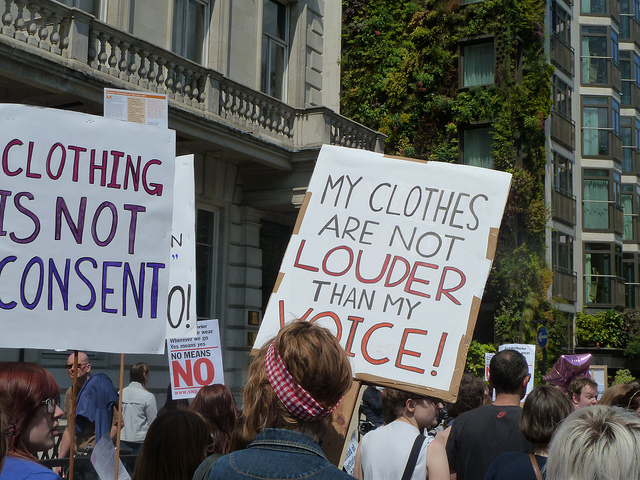Lydia Asano sashays down the red carpet at Kampala’s luxury Serena hotel, wearing an “Afrocouture” black lace gown, partially see-through and with a slit up her left thigh. Onlookers are captivated by the 6ft model. “It’s my favourite piece that I’ve ever modelled,” gushes Asano (21) backstage after the fashion parade. She regularly goes out to Kampala nightspots in this kind of outift. “It could be something little and cute, anything goes,” she says. Fast forward to Saturday night and Lilian Mubende (25) is sipping a cocktail in De Posh Bar in Kabalagala, Kampala’s party area, sporting a purple above-the knee dress. “When I wear my short dresses I feel free,” she says.
But if a bill passed by the Ugandan Parliament in December becomes law, fashion parades such as that at the Serena hotel may be threatened and Ugandan women will have to cover up or face arrest. Passed the day before a more notorious anti-gay bill, the government-backed anti-pornography legislation has a broad definition of “pornography”. According to the 2011 version, retabled in parliament last year, this includes “any cultural practice, radio or television programme, writing, publication, advertisement, broadcast, upload on internet, display, entertainment, music, dance, picture, audio or video recording, show, exhibition or any combination of the preceding that depicts sexual parts of a person such as breasts, thighs, buttocks and genitalia”, among other meanings. The 2011 draft bill reportedly proposes that anyone found guilty of abetting pornography face a 10m shilling (£2,473) fine or a maximum of 10 years in jail, or both.
Simon Lokodo, Uganda’s ethics and integrity minister, insists the bill in its current form will be signed by President Yoweri Museveni, and therefore come into force, very soon. “Maybe he will take some time to sign the anti-homosexuality bill, but for that anti-pornography [bill] we are sure he’s going to sign,” he told the Guardian. “He has not commented on this [publicly] as he has with the anti-homosexuality bill. That means he is comfortable with it.” Lokodo says that the bill targets “irresponsible” women wearing clothes above the knee in public because they are “hurting the moral fibre” of Uganda.
“So today if I met somebody putting on a miniskirt, a miniskirt that explains a lot of what that person has in one’s mind, that person should be arrested,” he said. “What we want to condemn is the provocativeness, that they want to draw somebody to desire them. We are saying that we are blaming and condemning any of these girls who dress so indecently, especially in public areas. We shall not accept it, whether it is fashion or what.”
Last April, when the bill was reintroduced in Parliament, Asano sported a “save the miniskirt” T-shirt and went to many save-the-miniskirt parties. Despite Lokodo warning that people will be “sensitised” by the law so they report others breaking it before police catch them, Asano is not letting down her hemlines yet. “We should be focusing on getting thieves and rapists off the streets instead of bringing in a miniskirt bill,” says Asano. “It violates our rights. If they refuse to let us wear miniskirts, why should the guys be able to wear little shorts?”

Mubende thinks that certain politicians are just trying to whip up fear. She is more cautious than Asano, saying: “The minister is serious about it [the bill] but the president’s not. When the president is serious about this we shall stop wearing them.
But Rita Aciro Lakor, the executive director of Uganda Women’s Network (Uwonet), argues the issue is about more than whether women can wear miniskirts. “It’s about going back to controlling women,” she says. “They’ll start with clothes. The next time they’re going to remove the little provisions in the law that promote and protect women’s rights.” She says the more people talk about miniskirts, the more people wear them, and that the law will be hard to implement.
Human rights lawyer Peter Magelah believes the bill, which he stresses is also largely about press freedom, will be used “selectively” and “for political reasons” if it becomes law. “Idi Amin had a miniskirt law in Uganda and a lot was written and said about it, but it wasn’t removed from the statute books until 2002,” he says. “It was in place and no one enforced it. And, of course, the law doesn’t provide for how short a miniskirt should be, so in a court it’s one thing a lawyer would have a field day challenging.”
Amy Fallon for the Guardian

Comments are closed.